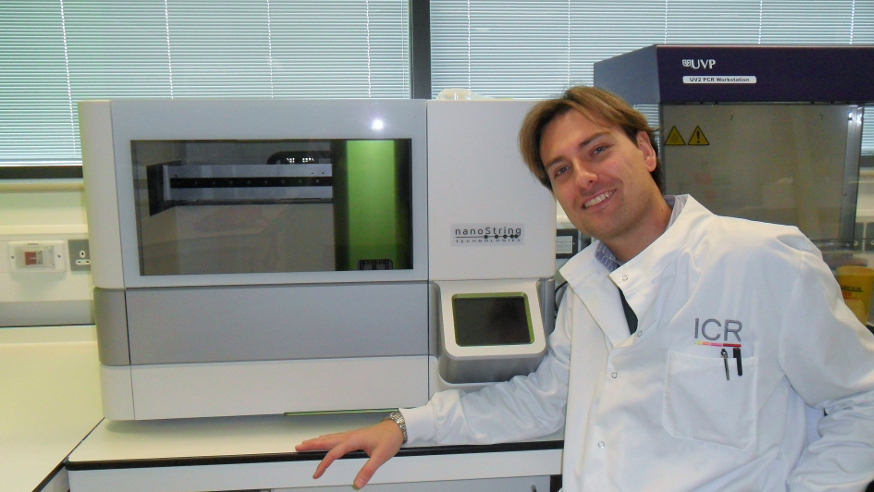I’ve learnt first-hand that surgery to remove a tumour is a frightening prospect. I wanted my tumour to be removed as quickly as possible – but faced with the risks of surgery, this decision was not an easy one to make.
But imagine if that surgery comes with a high risk of leaving you with a debilitating chronic illness – the decision to cut or not to cut then becomes even more difficult than the one I had to make.
This is the decision faced by patients with early-stage kidney cancer, where surgery often cures the condition, but carries with it the risk of chronic kidney disease (CKD), a potentially life-changing condition.
Experts of both cancer and the function of the kidneys must work together to develop tools to predict, and stop, patients from developing this chronic illness.
Now, Dr Nicola Valeri, a team leader at The Institute of Cancer Research and an honorary consultant at The Royal Marsden, and Dr Francesco Trevisani, a kidney disease clinician from the Vita-Salute San Raffaele University in Milan, are doing just this. Their research aims not just to cure the cancer, but to make sure the patient maintains a good quality of life after treatment.
I spoke with Nicola and Francesco about their collaboration and about their hopes that studying tiny signals within cells, called micrRNAs, could hold the key to better treatments for kidney cancer.
“Francesco heard about my work with microRNAs from a cancer point of view,” Dr Valeri told me. “He wanted to know whether we could use these short pieces of genetic information as biomarkers to predict outcomes of kidney surgery.”
Coming from a more clinical perspective, Dr Francesco Trevisani said: “Around half of patients who have had surgery for kidney cancer go on to develop CKD. This is kind of a ‘sneaky condition’ as it doesn’t have a lot of symptoms and many patients don’t realise they have it early on.”

While the condition might not be noticeable in the early stages, Dr Valeri said it can lead to complications such as high blood pressure and, if left unchecked, many patients eventually develop nephropathies and cardiovascular problems. He went on to tell me a little bit more about their research and about their plans for the future.
“We already have some ideas about what types of microRNA might be associated with an increased risk of chronic kidney disease, and we would like to assess whether screening for these will benefit patients in the clinic. If we can show that a microRNA biomarker might work to predict outcome following surgery, then we would like to conduct more prospective studies looking at the biomarker’s use in the clinic.”
Dr Trevisani expanded on this biomarker’s usefulness in the clinic: “It’s important for the patient to know what risks they face going into surgery and it’s important for the consultant to assess these risks and tailor the treatment to individual patients. With a biomarker test it will be possible to give treatment – such as ACE inhibitors – to prevent at-risk patients from developing hypertension or CKD.”
Deciding to go through with surgery or not is a difficult decision. But the results of this research might one day make that decision easier – giving consultants and their patients more confidence that the benefits of surgery will outweigh the potential harms.
The ICR is reliant on philanthropic donations to pump prime new initiatives such as this, and we are seeking donations to support Dr Valeri and Dr Trevisani’s work.
comments powered by